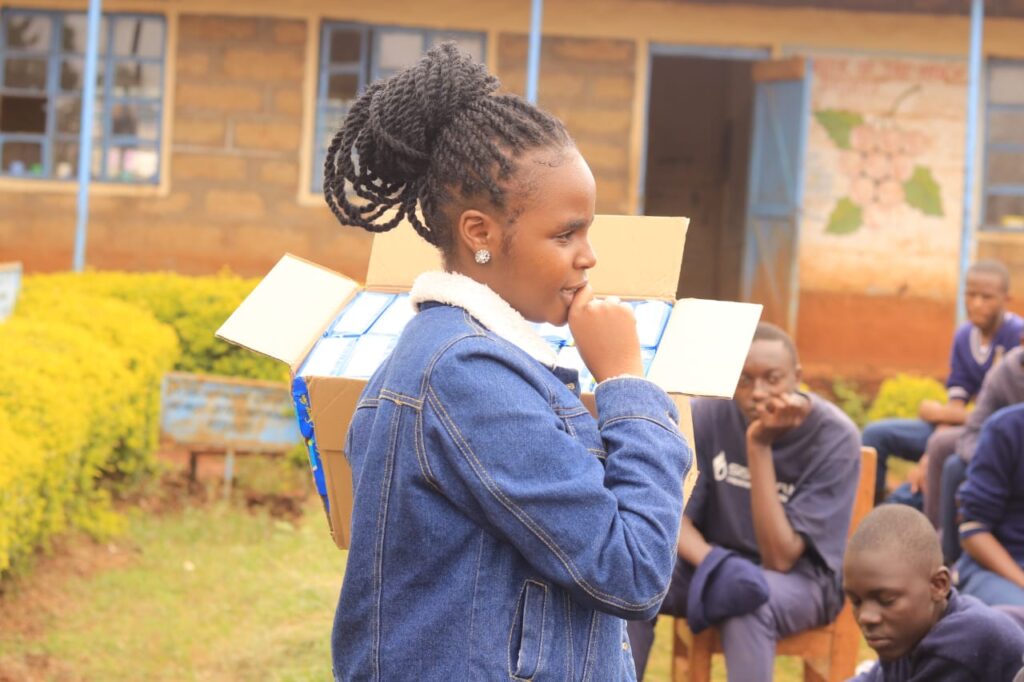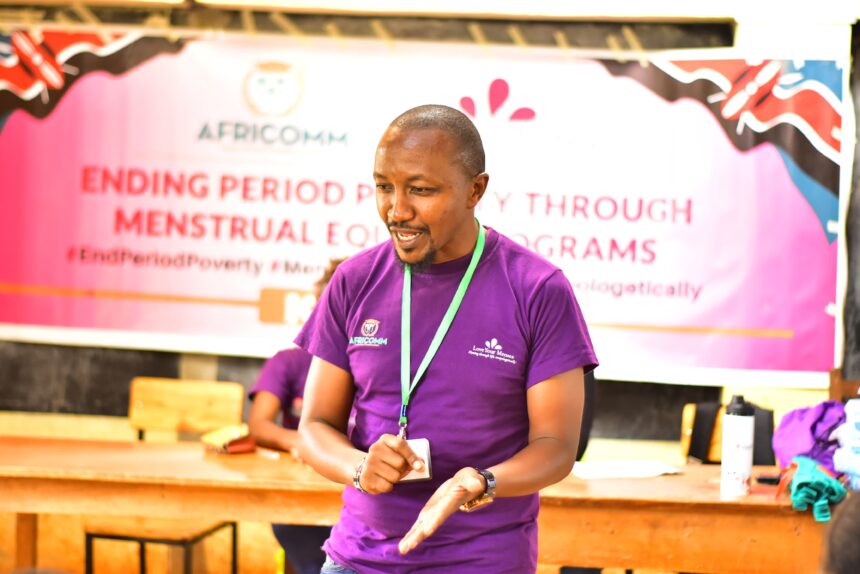Non-governmental organizations and foundations in Tharaka Nithi County are urging national and county governments to enhance menstrual health and hygiene by ensuring access to affordable menstrual products.
According to the Ministry of Health, 54 percent of girls in Kenya face challenges in accessing menstrual management products, with 65 percent still lacking sustainable access to safe menstrual products despite the ministry’s efforts in providing sanitary pads in schools.
James Gitari, the Team Lead at Africomm Development Centre, which runs the ‘Keeping A Girl In School’ (KAGIS) program in the county, emphasized the severe impact of menstrual product affordability on girls, particularly those from low-income backgrounds. He urged legislators to expedite the implementation of the proposed Sanitary Towels Provision Bill, which seeks to end period poverty by making sanitary pads freely available to all schoolgirls and women across the country.
Gitari, speaking during a visit to BCK Ntuntuni Primary School to commemorate World Menstrual Hygiene Day, highlighted that 2,125 students have benefited from their programs so far. He called on the government to allocate funds in the budget towards providing free sanitary towels in public schools to ensure girls in low-income settings have access to menstrual hygiene products.
“The same way there is a school feeding program, let there also be a sanitary pad program in schools so that parents and guardians who are not able to purchase the menstrual products for the girls can be assisted,” he said.
The Ministry of Education notes that a girl absent from school for four days a month loses up to six weeks of learning time in an academic year.
Joy Samuel, representing the Waza Dada Initiative, emphasized the critical role men and boys play in menstrual hygiene. She highlighted the troubling issue of transactional sex, where young girls engage in sex in exchange for menstrual products, and called on boys to be allies in fighting this exploitation.
“By educating boys about menstruation and encouraging them to support their sisters, friends, and classmates, we achieve a more supportive and empathetic community. We encourage the boys to speak out against this exploitation and support efforts to provide menstrual products to all who need them. This will not only help to protect young girls but also promotes a more equitable and respectful society,” Joy said.

She further urged the government to take swift action to enhance the affordability of menstrual products by eliminating taxes on these essential items, as the high cost prevents many women and girls from accessing them.
So far, the foundation has supported over 1,000 teenage girls with menstrual dignity kits.
The Ministry of Health commemorates Menstrual Hygiene Day to highlight the importance of proper menstrual practices toward achieving a period-friendly nation. Having launched the Menstrual Hygiene Management (MHM) policy on May 28, 2020, the ministry has taken significant steps to promote a period-friendly nation through a three-way approach: breaking the silence, ensuring hygienic and safe management, and promoting safe reuse and disposal of menstrual products.
The Ministry of Health has also called upon organizations to support the county-level implementation of the MHM policy. This support is crucial to creating a supportive environment for women and girls, enabling them to manage menstruation with dignity and safety, and ensuring that menstruation does not become a barrier to education, health, and empowerment.









